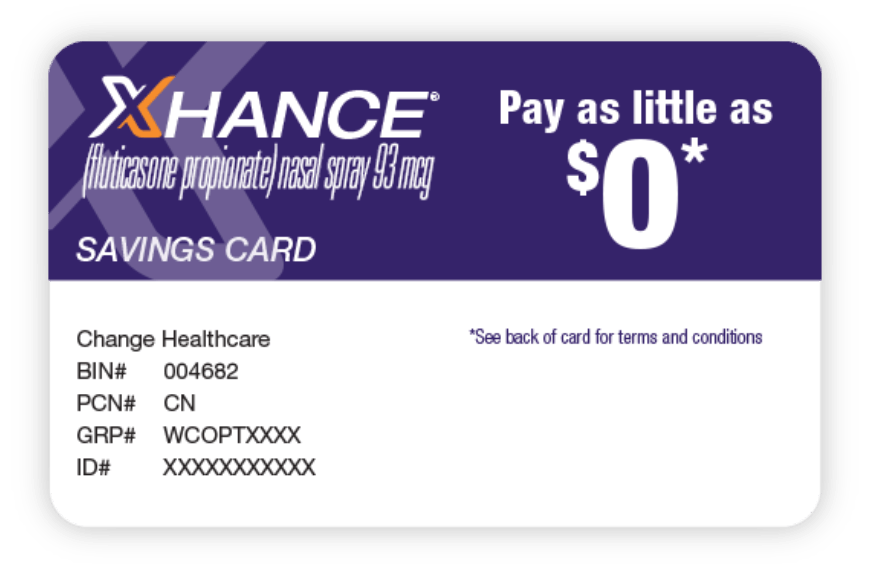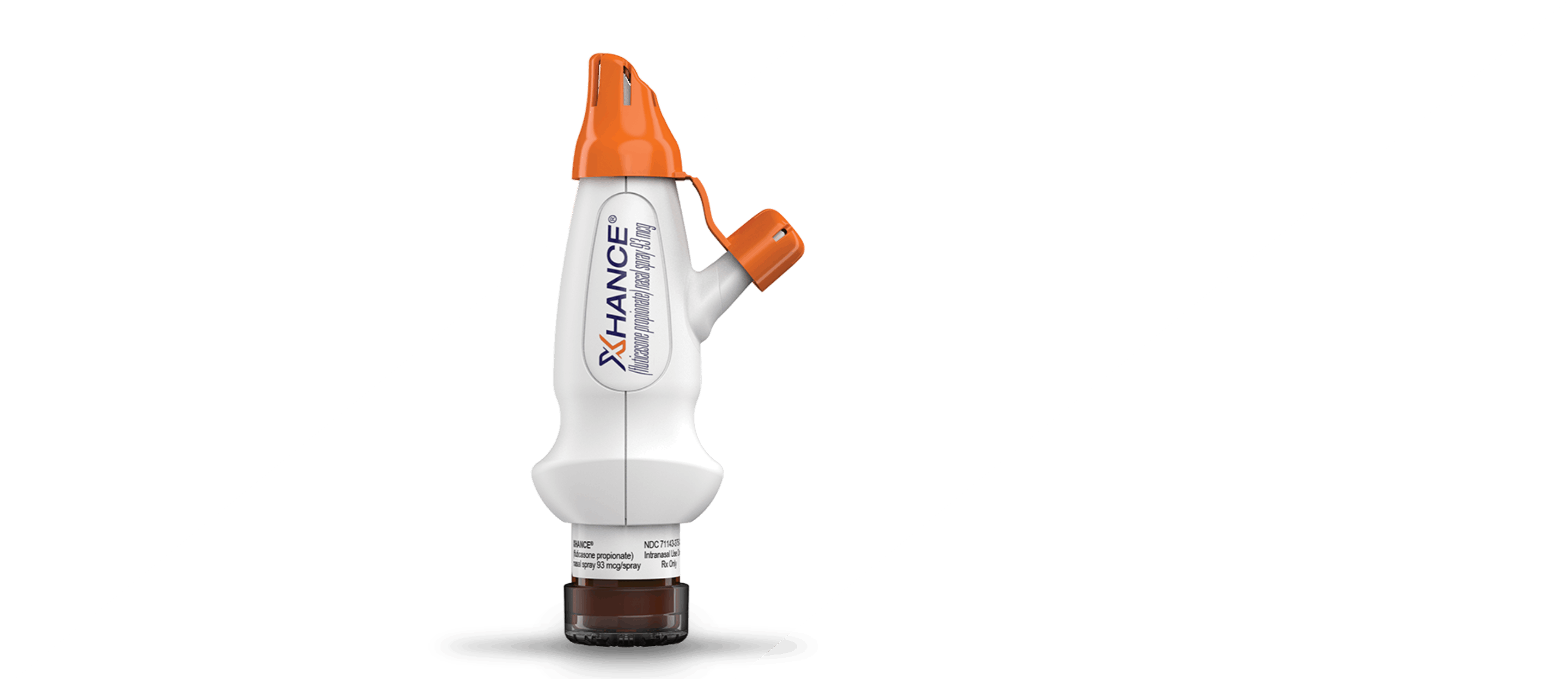Is XHANCE
right for me?
Fill out this short questionnaire* to assess your symptoms. Use it to help you talk to your doctor about your symptoms.
Check my symptoms >How XHANCE
works
XHANCE uses your breath to deliver medicine high and deep into the nose to the source of the problem.
How to
use XHANCE
XHANCE has a nosepiece and a flexible mouthpiece. This is different from traditional nasal sprays, but most people find it easy to use.†
Watch the step-by-step video >If your commercial health insurance covers XHANCE, your
out-of-pocket cost could be as little as $0 using the XHANCE copay card

Eligible, commercially insured patients can pay
as little as $0 for their prescription of XHANCE.‡
Be sure to download or print your XHANCE
Copay Card to receive available savings.
* This is not a diagnostic tool. Only your doctor can diagnose your condition. † In a follow-up survey of people who had taken XHANCE in clinical studies. ‡ These offers are not valid for use by cash-paying patients or patients enrolled in Medicare, Medicaid, and TRICARE or other federal or state programs. Offers are subject to quantity limitations. Maximum benefits per fill apply. Patient cost share may impact benefits and eligibility. Optinose® reserves the right to rescind, revoke, or amend this offer without notice. Click here for additional terms and conditions.
If you have more questions about how to get and save on XHANCE, please see frequently asked questions about XHANCE support and savings.

